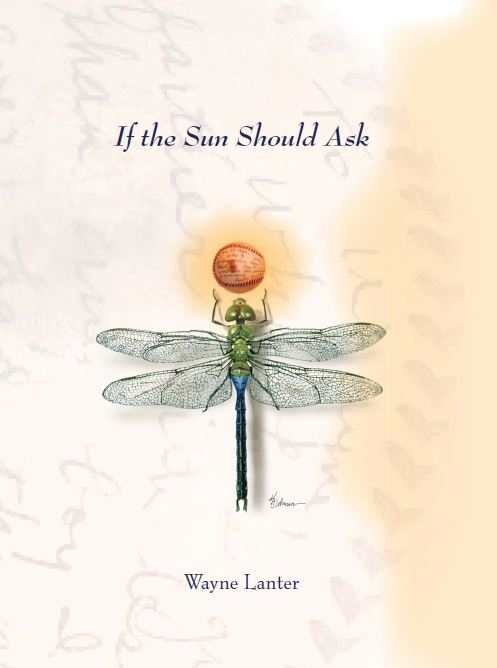If the Sun Should Ask
Witch Doctors and Parables
Lanter has preserved the time and place of his youth with humor and uncommon, soul-piercing precision.
“There is a lifetime of instruction on the streets of small Midwestern towns,” writes Wayne Lanter, a masterful storyteller and poet whose poignant memoir, If the Sun Should Ask, is an evocation of rural and small-town life in the mid-twentieth-century American Midwest.
With the perspective that comes with age and distance, Lanter has recreated that vanished world before electronic gadgets filled every waking moment with chatter, where a child’s summers were long and deliciously empty, and a moment spent in nature was a precious, spacious thing. Early on, as an unusually perceptive child, he made note of how death creates an irreparable tear in the fabric of life, and how an otherwise unremarkable facade can hide love and cruelty, honor and disdain, faith and superstition.
Lanter sees to the dark core of pain at the heart of those around him, and his characters, even the most banal, are described with uncommon, soul-piercing precision: “He always had a panicked look about him, as if he had been dumped off in foreign territory and wasn’t at all certain how to deal with the natives.” In another vivid example, he writes, “His nose was always running, and he would sit for hours in a back seat dripping snot, sucking his thumb, his right index finger stuck up his nose as if he wanted to plug up the gaps before whatever was left of him leaked away.” Even everyday objects can take on a sinister cast: “a potbelly stove hovered silent and somber // as a priest.”
But the writing does not lack good humor. Lanter revels in the memory of childhood and adolescent pranks, misbehaviors, and brutalities that include outhouse-tipping (with the unfortunate user still within) and mayhem at the one-room schoolhouse. He recalls the awkwardness and inevitable angst of coming of age in a time when information was not readily accessible and one’s elders were unlikely to share.
Lanter is an English professor emeritus at Southwestern Illinois College and a writing fellow of the University of Iowa’s Graduate Program in Creative Writing. He is the author of a novel and a nonfiction personal narrative and has published multiple books of poetry.
His new book merits careful proofreading to correct errors that include “copula” where “cupola” is the architectural feature; incorrect word usage like, “the rats’ habits and talents were not missed on the anxious miners” (“on” should be “by”); and missing words like, “and never once step on even touch one of the crossties.”
The book is graceful and appealing in design and layout, although errors in both spacing and font size can be found. The detailed table of contents, the genealogical charts, and the author’s bio are informative.
In supple prose and carefully crafted poetry, Lanter has preserved the time and place of his youth, ensuring, as was his hope, “that it not be forgotten, too soon.”
Reviewed by
Kristine Morris
Disclosure: This article is not an endorsement, but a review. The publisher of this book provided free copies of the book and paid a small fee to have their book reviewed by a professional reviewer. Foreword Reviews and Clarion Reviews make no guarantee that the publisher will receive a positive review. Foreword Magazine, Inc. is disclosing this in accordance with the Federal Trade Commission’s 16 CFR, Part 255.

